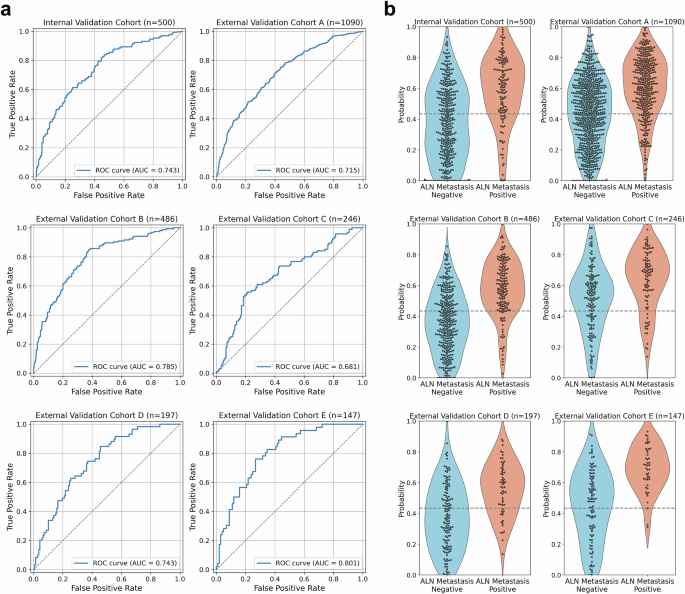Overview
A recent study from Lund University in Sweden has developed an AI model that identifies breast cancer patients who may not need axillary surgery. This model analyzes previously unused data from mammograms to accurately assess the risk of metastasis in the armpit area.
Key Findings
- The AI model indicates that over 40% of current axillary surgeries could potentially be avoided.
- In breast cancer treatment, axillary lymph nodes are examined to determine the spread of cancer, which influences treatment decisions.
- Approximately 20% of breast cancer patients experience cancer spread to the armpit, while around 80% do not have cancer in their lymph nodes.
Research Insights
Professor Lisa Rydén, who leads the study, emphasizes the importance of predicting metastasis risk in the armpit. The research is part of the NILS (Non-Invasive Lymph node Staging) project, which aims to develop non-invasive diagnostic methods for earlier lymph node status assessment.
AI Model Development
The AI model was trained using mammograms from 1,265 women diagnosed with early-stage breast cancer between 2009 and 2017. The model analyzes the entire mammogram, not just the tumor area, to calculate the risk of metastasis.
Future Implications
Rydén hopes that the AI model can be integrated into routine mammography screenings to assess lymph node metastasis risk, allowing for more personalized treatment plans. The study’s findings have been published in the journal NPJ Digital Medicine.
Next Steps
While Sweden has a robust public mammography screening program, the researchers are seeking to validate their findings with independent patient data both domestically and internationally.
